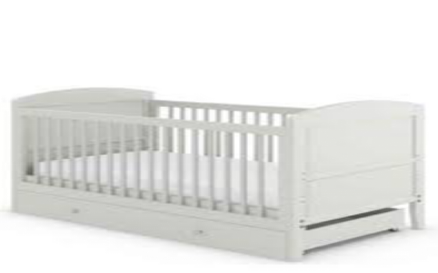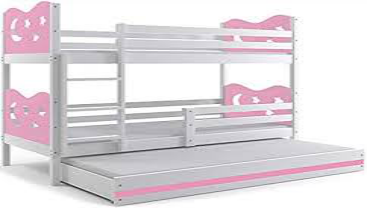
ISO 7175 Testing
Part 1 – Safety requirements of Children Cots and folding cots for domestic use
Part 2: Test Methods of Children Cots and Folding cots for Domestic Use
Internal Length between 900mm to 1400 mm
This standard applies to cots that are Fully assembled and are ready to use. It is possible that additional requirements be applied for cots that can be converted into other items (e.g. changing units, playpens).
This standard does not apply to carry cots, cribs, cradles, rocking and swinging cots
Clause 4 of ISO 7175 part 1 specifies the SAFETY REQUIREMENT apply both before and after testing as per ISO 7175 part 2
Safety Requirement as per ISO 7175 -1
| S.N | Clause | Test | Requirement |
| 1 | 4.2.1 | Material and surface | Must meet the requirement of ISO 8124-3 |
| 2 | 4.2.2 | Flammability of textile coated textile and plastic coverings | The maximum rate of flame shall be 30 m/s in accordance with ISO 8124-2 |
| 3 | 4.3 | Initial stability | The cot should not overturn in accordance with ISO 7175-2 (Cl 6.2 ) |
| 4 | 4.4.1.1 | Edges and protruding parts | Edges shall be round and free of burrs and sharp edges |
| 5 | 4.4.1.2 | Self-tapping screw | This screw shall not be used to fasten components when dismantling the cot for transportation. |
| 6 | 4.4.1.3 | Labels and decals | Should not be used on the internal surface of cot sides and ends |
| 7 | 4.4.1.4 | Small parts | In accordance with ISO 7175-2 |
| 8 | 4.4.1.5 | Castor and Wheels | Should not be fitted exception are there |
| 9 | 4.4.2.2 | Assembly holes | No accessible hole between 7 mm dia and 12 mm dia unless depth is less than 10mm. |
| 10 | 4.4.2.3 | Distance between cot base and sides and end s | 25 mm cone shall not pass between cot base and sides and between cot base and ends. |
| 11 | 4.4.2.4 | Opening in mesh sides and ends | 7mm cone shall not pass through the mesh openings. |
| 12 | 4.4.2.5 | Distance between slats of cot base | 60 mm cone should not pass between two adjacent slats of the cot base. |
| 13 | 4.4.2.6 | Opening in the mesh of cot base | 85 mm cone shall not pass through a cot base made of mesh. |
| 14 | 4.4.3 | Head Entrapment on the exterior of the cot | In accordance with ISO 7175 – 2 |
| 15 | 4.4.4 | Shear and squeeze points | In accordance with ISO 7175 – 2 |
| 16 | 4.4.5 | Snag points | In accordance with ISO 7175 – 2 |
| 17 | 4.4.6 | Locking System | All cots should be equipped with at least two locking system |
| 18 | 4.4.7 | Cot base | In accordance with ISO 7175 – 2 |
| 19 | 4.4.8 | Sides and ends | In accordance with ISO 7175 – 2 |
| 20 | 4.4.9 | Cot rim | No filing shall be removed from cot rim when testing as per 7175-2, 6.6 bite test |
| 21 | 4.5 | Final Stability | The cot should not overturn as per cl 6.12 of ISO 7175-2 |
| 22 | 4.6 | Mattress size | The distance between mattress and sides shall be less than 30mm |
| 23 | 5 | Packaging | The plasting covering should be tested as per ISO 8124-1 |
| 24 | 6 | Instruction for use | Read carefully and alphabet size >5mm |
Part 2 Test Method : Children’s cot and folding cots for domestic use

ISO 7175 Testing 2
This standard is designed to prevent the child from climbing out. Does not apply to swinging and rocking chair.
Test equipment
Test forces must be applied with suitable object like cones, cones of dia 7mm, 25mm, 45mm, 60mm, 65mm and 85mm made of plastic or other hard material are required for applying force.
Measurements/ Testing
1 . Before testing, Assemble and inspect the cot visually . Tight all the fittings. Determine whether exposed edges, screws, bolts, zips and other fittings are rounded off and do not have sharp edges.
- Measure the height of sides, holes and distance between slats of cot base, mesh width, side slats, clearance between cot base and sides and ends.
- Impact testing
- Stability tests
- Locking and location device
- Bend testing
- Fatigue testing
- Endurance testing
- Static loading testing
- Inspection
- Mechanical testing
For more information please visit www.itcindia.org or write info@itcindia.org
